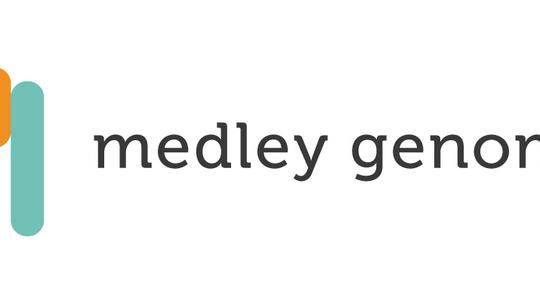
For Medley Genomics, the mission is simple: make cancer a chronic illness.
That may seem like a tall order, but not from where the Medley Genomics team stands. In fact, it’s just their first priority. Ultimately, Medley wants to solve additional biological riddles through a greater understanding of “genomic heterogeneity” — a problem plaguing many complex diseases.
I spoke with Patrice Milos, CEO and co-founder of Medley Genomics, to discuss what that actually meant. She’s a coolly confident powerhouse with nearly 20 years of experience in the health care space as both a student and professional. Her career highlights include multiple stints at Pfizer, including an executive directorship of the company’s Translational and Molecular Medicine branch; chief science officer (among other roles) at Helicos BioSciences, and most recently, president and CEO of Claritas Genomics.
If I trust anyone to explain this science, it’s Milos.
She begins with the big picture. “Last year in the U.S., one in four people died of cancer,” she says. “Somehow, we need to be continuously advancing our knowledge so that those deaths can be delayed further or be made treatable diseases,” she says. “It’s going to take time, but its companies like ours who will be able to work with other companies ... to beat it.”
Cures start with focusing on tumors, she continues.
“The fundamental issue is that we are trying more and more to really understand the tumor ecosystem, and that means [understanding] it more than just the singular most common mutation that is present in the tumor,” Milos says. “It may be a prime driver for the tumor, but when you look at a tumor more deeply, and if you target a therapy to smaller clones with different mutations, you may get an additional response.”
That’s the “genetic heterogeneity” — the mixed bag of cellular elements that make each tumor unique. When doctors have the tools to better analyze the genetic heterogeneity of a tumor, they can “begin to look collectively at the heterogeneity; to describe the molecule mechanism, the cause, the unchecked growth of those cells, and it allows them to think of a better treatment regime or combination therapy,” Milos says. “You’re not monitoring the tumor, but rather monitoring specific cells — hopefully resulting in a tumor shrinking, and [ultimately] creating a more chronic disease.”
Clinical and diagnostic labs — more than 2000 of them — are already doing this, Milos continues.
But because there are so many pieces of a (still mysterious) puzzle spread across those 2000+ labs, rare cell populations go unanalyzed. That leaves treatment profiles incomplete and less effective.
That’s where Medley comes in. It wants to create a service platform for those groups, establishing a one-stop shop for those studying tumor’s genetic profiles. Eventually, the group will provide “specialized, personalized tools” for those who utilize the platform.
"We are at that great state between discovery and utility application,” Milos says. “That is, we’ve developed all the software tools.”
Cut to Ben Raphael, another co-founder of Medley Genomics and former Brown University professor who’s since landed at Princeton, where he is a full professor in Computer Science. Like Milos, he’s a heavy hitter, with an undergraduate degree from MIT, a PhD from UC San Diego, and has worked with groups like the Cancer Genome Atlas and the International Cancer Genome Consortium on his resume. He’s developed Medley’s premiere software using publicly available data sets, Milos tells me, and his work has “shown the power of the tools.”
Which brings us to today. “We’re taking that software, further engineering it and commercializing it in cloud-based platform aimed to clinical validation,” Milos continues. While Medley doesn’t currently have a clinical lab, early tests have been run with Rhode Island Hospital.
That's just one step in what Milos calls “four distinct market opportunities” for Medley as it grows. Beyond work with medical centers and academic groups, Medley wants to get involved in pharmaceutical work, diagnostics and clinical support.
Ultimately, Medley exists to make a difference. “It really is thinking about what gaps exist in health care ... the suffering from human disease, and the patient,” Milos says.
If all this sounds impressive, it’s because it is. “I would say that this is a little bold of a statement: we are definitely at a leading edge,” she continues. “We have deep knowledge of this field.”
Which is evident. But Medley Genomics is also a business, a young, Providence-built one at that, and Milos has had to wear many hats to ensure the science is sharp and the lights stay on.
It helps that Milos enjoys the process. “I love the building phase, I love the innovating phase, where you’re thinking about where the future is going,” she says.
It also helps that Milos and Medley have been a so well received. Milos won the MassChallenge Bridge to Rhode Island Bootcamp competition in February. Then, Medley Genomics won a $50,000 Innovation Voucher from the Rhode Island Commerce Corporation in June. And Milos herself is courting investors for the fledgling startup.
Milos also credits the entrepreneurial buzz around Providence and the greater Rhode Island area. “If ever I was to try something here in Providence, now is the time to do it,” she says. “It is so crowded in Boston.” Working in Rhode Island and its proximity to additional Boston resources “has created an opportunity for a unique, inclusive network-in-a-network.”
There are many elements to the work that Milos and Medley Genomics does. But in a way, it’s in their — er, DNA. Before we end our conversation, I ask Milos the story behind the group’s name. “Medley — like when you think of symphony,” she tells me. “It’s composed of all different notes and all different signatures, and that’s exactly what we’re doing: describing signatures of cells.”








